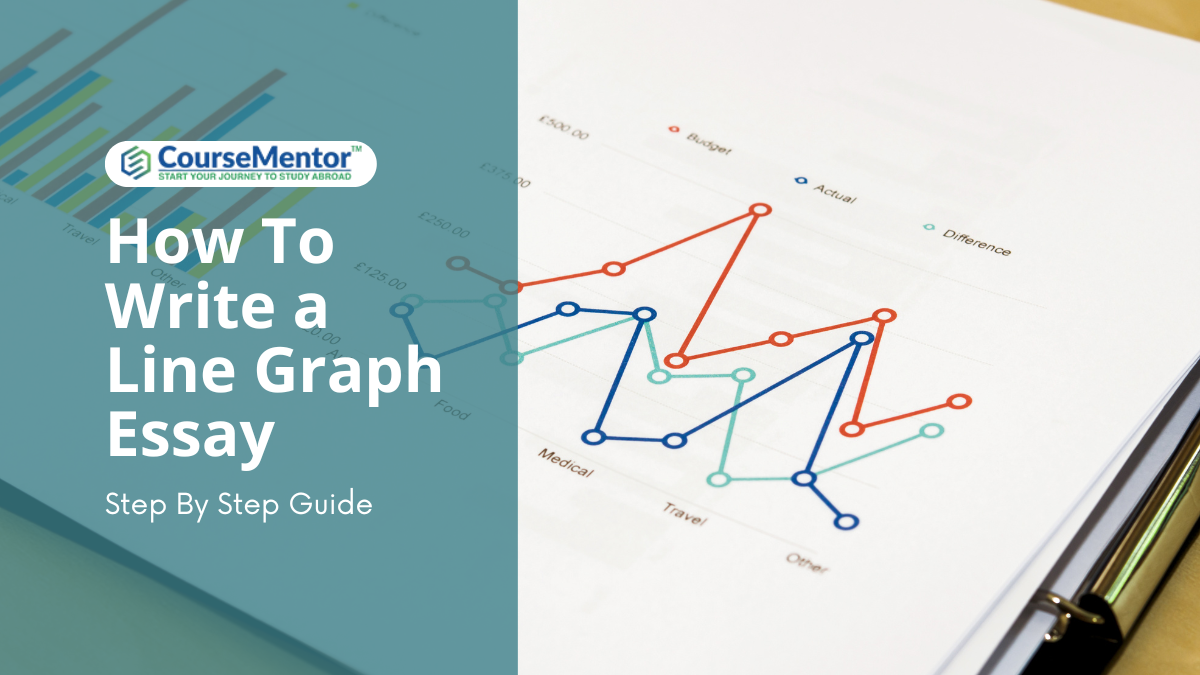Explore diverse Accounting Research Topics, from AI’s influence to sustainability and blockchain’s impact. Stay updated with the latest trends and insights
Hello, fellow explorers of financial knowledge! Ready to dive into the intriguing world of Accounting Research Topics? Whether you’re a numbers aficionado or just curious about finance, you’re in for a treat.
Uncover the mysteries behind financial statements, explore auditing intricacies, and venture into evolving taxation strategies.
Imagine numbers as gateways to unraveling business secrets and economic insights. We’re not just skimming the surface; we’re diving deep into the heart of accounting research, revealing captivating stories beneath jargon and formulas.
Ever wondered how auditors ensure financial compliance? How technology transforms accounting practices? Or the ethical compass guiding finance?
No stone unturned, all questions answered.
But that’s not all. We’ll delve into intersections of accounting with sustainability, blockchain, and the art of valuing businesses.
Join us, whether you’re a student, professional, or someone curious about finance. Together, we’ll explore accounting research topics, shedding light on concepts, trends, and insights that make you part of the financial conversations shaping our world.
Grab your virtual passport, and let’s journey into the fascinating universe of Accounting Research Topics!
What are Accounting Research Topics?
Accounting research topics refer to specific subjects or areas within the field of accounting that scholars, researchers, and students focus on for in-depth investigation, analysis, and exploration. These topics aim to contribute new knowledge, insights, and understanding to the accounting discipline.
Accounting research topics can cover a wide range of areas, including financial reporting, auditing, taxation, management accounting, ethics, technology, and more.
Researchers in accounting delve into these topics to address questions, challenges, and gaps in knowledge within the accounting profession and its various subfields.
The goal of accounting research is to advance the understanding of accounting principles, practices, regulations, and their impact on businesses, economies, and society as a whole.
Accounting Research Topics
Check out some of the most interesting accounting research topics to work on.
Financial Reporting and Analysis
- Comparative Analysis of Financial Statements.
- Earnings Management and Manipulation.
- Financial Ratios and Performance Evaluation.
- Predictive Analytics in Financial Forecasting.
- The Impact of Fair Value Accounting on Financial Statements.
- Revenue Recognition Practices Across Industries.
- Financial Statement Fraud Detection Techniques.
- Volatility in Earnings and Stock Prices.
- Implications of IFRS Adoption on Financial Reporting.
- Market Reaction to Earnings Announcements.
Auditing and Assurance
- Auditor Independence and Ethics.
- Audit Quality and Auditor Rotation.
- Fraud Detection and Forensic Accounting.
- Internal Control Evaluation and Audit Risk.
- The Role of Artificial Intelligence in Auditing.
- Audit Committee Effectiveness and Financial Reporting.
- Materiality and Audit Planning.
- Auditor Liability and Legal Implications.
- Auditor Communication and Financial Statement Users.
- Comparative Study of Audit Regulations in Different Countries.
Taxation and Tax Planning
- Tax Avoidance vs. Tax Evasion.
- Transfer Pricing and International Taxation.
- Taxation of Digital Transactions.
- Tax Incentives and Economic Development.
- Environmental Taxation and Sustainability.
- Tax Implications of Mergers and Acquisitions.
- Tax Planning Strategies for High-Net-Worth Individuals.
- Tax Policy and Income Inequality.
- Tax Compliance Behavior of Small Businesses.
- The Role of Tax Advisers in Tax Planning.
Corporate Governance and Ethics
- Board Composition and Financial Reporting Quality.
- Executive Compensation and Corporate Performance.
- Corporate Social Responsibility Reporting.
- Whistleblowing and Ethical Decision-Making.
- The Impact of Corporate Governance on Financial Fraud.
- Shareholder Activism and Corporate Governance.
- Dual-Class Share Structures and Corporate Governance.
- Ethical Leadership and Organizational Culture.
- Corporate Governance Reforms and Regulatory Changes.
- Diversity and Gender Representation in Corporate Boards.
Management Accounting and Costing
- Activity-Based Costing and Resource Allocation.
- Budgeting and Variance Analysis.
- Just-in-Time Inventory Management.
- Target Costing and Pricing Strategies.
- Performance Measurement in Nonprofit Organizations.
- Cost-Volume-Profit Analysis and Break-Even Point.
- Costing Methods in Service Industries.
- Lean Accounting and Waste Reduction.
- Transfer Pricing in Multinational Corporations.
- Balanced Scorecard and Performance Measurement.
International Accounting and Reporting
- Convergence of International Financial Reporting Standards (IFRS) and Generally Accepted Accounting Principles (GAAP).
- Cross-Cultural Differences in Financial Reporting.
- Accounting for Foreign Exchange Transactions.
- Harmonization of Accounting Standards in Global Markets.
- Implications of Brexit on Financial Reporting in the EU.
- International Transfer Pricing Regulations.
- Cultural Influence on Financial Disclosure Practices.
- Comparative Analysis of Accounting Regulations in Different Countries.
- Challenges of Adopting IFRS in Developing Economies.
- Multinational Corporations’ Reporting of Tax Liabilities.
Emerging Technologies and Innovations
- Blockchain Technology in Accounting and Auditing.
- Cloud-Based Accounting Systems and Data Security.
- Robotic Process Automation in Financial Reporting.
- Artificial Intelligence in Fraud Detection.
- Big Data Analytics for Decision-Making.
- Cybersecurity and Data Privacy in Accounting.
- Digital Currencies and Cryptocurrency Accounting.
- Role of Chatbots in Financial Customer Service.
- Automation of Tax Compliance and Reporting.
- Machine Learning in Credit Risk Assessment.
Sustainability and Environmental Accounting
- Carbon Accounting and Emissions Reporting.
- Social and Environmental Performance Reporting.
- Green Financing and Sustainability Reporting.
- Integrated Reporting and Triple Bottom Line.
- The Role of Accounting in Achieving Sustainable Development Goals.
- Environmental Disclosures and Investor Decisions.
- Sustainability Performance Metrics and Benchmarks.
- Valuation of Natural Resources in Financial Statements.
- Sustainability Assurance and External Auditing.
- Impact of Climate Change on Corporate Financial Reporting.
Behavioral Aspects in Accounting
- Behavioral Biases in Financial Decision-Making.
- Role of Cognitive Psychology in Auditing.
- Ethical Behavior and Moral Dilemmas in Accounting.
- Psychological Factors Affecting Investor Behavior.
- Nudging Techniques for Promoting Financial Literacy.
- Overconfidence and its Effects on Financial Decision-Makers.
- Herd Behavior in Financial Markets.
- The Influence of Framing on Investment Choices.
- Prospect Theory and Risk Perception in Accounting.
- Biases in Financial Reporting and Disclosure.
Financial Markets and Investments
- Portfolio Management and Risk Diversification.
- Capital Market Efficiency and Information Asymmetry.
- Behavioral Finance and Investor Sentiment.
- Market Microstructure and High-Frequency Trading.
- Financial Derivatives and Hedging Strategies.
- Impact of Market Regulations on Investor Behavior.
- Volatility Spillover Across Global Financial Markets.
- Investment Strategies in Bull and Bear Markets.
- Cryptocurrency Investment and Volatility.
- Algorithmic Trading and Market Liquidity
| Also Read: Guide on How to Write a Research Paper |
Advanced Accounting Research Topics
Have a close look at some of the advanced accounting research topics in details.
The Role of Sustainability Accounting in Corporate Decision-Making
Investigate how integrating environmental and social factors into financial reporting influences strategic decisions and performance metrics in businesses.
Auditor Judgment and Decision-Making in Complex Financial Environments
Explore how auditors make judgments and decisions when faced with intricate financial transactions and complex reporting issues.
Financial Reporting Quality and Market Valuation
Analyze the relationship between the quality of financial reporting and the market valuation of firms, considering factors like transparency, accuracy, and consistency.
Tax Avoidance Strategies of Multinational Corporations
Examine the methods multinational corporations employ to minimize their tax liabilities across different jurisdictions and the implications for governments and stakeholders.
Corporate Governance and Earnings Management
Investigate the impact of different corporate governance mechanisms on earnings management practices, including the role of board structures, executive compensation, and ownership concentration.
Behavioral Biases in Investment Decision-Making
Study how cognitive biases and behavioral factors influence investment decisions made by individuals and institutional investors in financial markets.
Digital Transformation and Accounting Information Systems
Analyze the integration of emerging technologies like AI, blockchain, and cloud computing in accounting information systems and their effects on efficiency, accuracy, and security.
Financial Distress Prediction Models for Firms
Develop and validate predictive models that use financial and non-financial indicators to anticipate the likelihood of a company facing financial distress or bankruptcy.
Environmental, Social, and Governance (ESG) Reporting Frameworks
Evaluate the effectiveness and comparability of various ESG reporting frameworks in promoting sustainable business practices and attracting socially responsible investments.
Regulatory Changes in the Post-Global Financial Crisis Era
Investigate the impact of post-financial crisis regulations (e.g., Dodd-Frank Act, Basel III) on financial institutions’ risk management practices, capital requirements, and reporting obligations.
Impact of IFRS Adoption on Financial Reporting Quality
Assess how the transition from local GAAP to International Financial Reporting Standards (IFRS) influences the quality and comparability of financial statements across countries.
Blockchain Technology in Auditing and Assurance
Examine the potential of blockchain to enhance the efficiency, transparency, and reliability of auditing processes, including real-time transaction verification and fraud detection.
Corporate Social Responsibility (CSR) Disclosures and Stakeholder Perception
Analyze the relationship between a firm’s CSR disclosures and stakeholders’ perceptions of the company’s ethical practices, reputation, and long-term value.
Mergers and Acquisitions Accounting Challenges
Investigate the complexities of accounting for business combinations, including issues related to goodwill impairment, fair value measurement, and post-merger integration.
Behavioral Ethics in Accounting Professionals
Study how psychological biases and ethical reasoning impact the ethical decision-making of accounting professionals, examining factors that influence ethical behavior.
These topics delve into advanced areas of accounting research that can contribute valuable insights to the field and your postgraduate studies.
Remember to choose a topic that aligns with your interests, expertise, and the resources available for your research.
What are current research topics in accounting?
Here are some current research topics in accounting
Smart Computers Changing Accounting
Imagine computers that think like humans! People are studying how super-smart computers, known as Artificial Intelligence (AI), are transforming accounting tasks.
They’re finding ways AI can make accounting quicker and more accurate, like spotting errors and helping with money reports.
Numbers for a Better Earth
Did you know accounting can help save the planet? Researchers are figuring out how to use numbers to track how well companies take care of nature, society, and fairness.
They’re making new rules and plans so companies can show off how they’re reducing pollution, treating everyone fairly, and being good citizens.
Super Safe Money Records
Have you heard about the magical ledger called Blockchain? It’s like a special book that everyone can see but can’t change.
People are studying how this cool thing can make accounting super secure. It helps keep track of money, things people own, and makes sure money stories are true.
Numbers that Tell Stories
Nowadays, businesses make tons of information. Researchers are finding ways to make sense of this big data to help accounting be even better.
They’re making new tricks to understand money stories, predict risks, and decide what’s best for companies. But, they’re also thinking about being fair and good while using these tricks.
School for Future Accountants
How can we teach future number wizards the right skills? The accounting world is changing fast, and experts are thinking about what students should learn.
They want to teach not just numbers, but also thinking smart, solving problems, and using data to make great choices.
Remember, these are just a few exciting things happening in accounting research. As accounting grows, there will be even more cool things to explore!
What are good topics for a project in accounting?
Here are some good topics for a project in accounting
Smart Computers and Money
Ever wondered how smart computers are changing how we deal with money? You can dive into the world of AI and see how it’s making accounting faster and less mistake-prone. Think of it like a computer buddy that helps accountants do their job even better!
Numbers for a Greener World
Want to explore how numbers can help our planet? Check out how businesses are using accounting to be more eco-friendly.
You’ll find out how they measure stuff like pollution and fairness, and how this helps them be better citizens of the Earth.
Magic Books for Money
Imagine a magical book that makes sure no one can trick it. That’s what blockchain is like! You can dig into how this cool tech is shaking up the way we keep track of money and stuff people own. It’s like a super-secure money diary for everyone to see.
Spying Secrets in Numbers
Big data, big secrets! Find out how big companies are using special tricks to understand their huge piles of info.
You’ll learn how they use data to tell financial stories, predict problems, and make smart choices. But remember, using these tricks the right way is super important!
School for Future Money Wizards
Want to know how future accountants will learn their tricks? The accounting world is changing faster than a speeding bullet.
You can explore what skills accounting students need to be super successful, like solving problems, thinking smart, and using data like a superhero.
These are just a few exciting project ideas for your accounting assignment. Pick the one that tickles your curiosity the most, and get ready to dive into the world of numbers and secrets!
How to select Best Accounting Research Topics?
Selecting the best accounting research topic is crucial for a successful and meaningful study. Here’s a step-by-step guide to help you choose the ideal topic:
Define Your Interests
Start by identifying areas of accounting that genuinely interest you. Consider whether you’re drawn to financial reporting, auditing, taxation, sustainability, technology, or any other subfield. A topic that aligns with your passion will keep you motivated throughout your research.
Research Current Trends
Stay updated on the latest trends and emerging issues in the accounting field. Browse academic journals, news articles, and industry reports to identify topics that are relevant, timely, and in demand.
Assess Available Resources
Evaluate the resources available for your research. Do you have access to relevant data, literature, or experts in the chosen topic? Adequate resources will ensure you can conduct thorough research and analysis.
Consider Your Audience
Think about your target audience. Are you writing for academics, professionals, policymakers, or the general public? Tailor your topic to address the interests and needs of your intended audience.
Narrow Down Your Focus
Accounting is a vast field, so narrow down your focus. For instance, if you’re interested in financial reporting, you could narrow it down to a specific aspect like revenue recognition or fair value measurement.
Identify Research Gaps
Look for gaps in existing literature. Is there a question that hasn’t been adequately answered or an area that lacks comprehensive research? Addressing research gaps adds value to your study.
Consider Practical Relevance
Consider the practical implications of your chosen topic. How does it relate to real-world accounting practices, challenges, or opportunities? A topic with practical relevance is more likely to have an impact.
Consult with Advisors or Experts
Discuss your ideas with mentors, advisors, or experts in the field. They can offer valuable insights, help you refine your topic, and provide guidance on feasibility.
Evaluate Feasibility
Assess the feasibility of your chosen topic. Do you have the skills, time, and resources to carry out the research effectively? Avoid topics that are too ambitious or beyond your capabilities.
Personal Significance
Consider the personal significance of the topic. Does it resonate with your long-term goals, career aspirations, or values? A topic that holds personal meaning is likely to drive your dedication.
Test Your Hypothesis
If you have a specific research question or hypothesis in mind, test it by conducting preliminary research. This will help you gauge the availability of data and whether your hypothesis is worth investigating.
Flexibility for Adaptation
Choose a topic that allows some flexibility for adaptation. As you delve deeper into research, you might uncover new angles or perspectives that could enhance your study.
Balance Challenge and Interest
Strive for a balance between a topic that challenges you intellectually and one that keeps you engaged due to your interest. An overly complex topic might lead to frustration, while a too-easy topic might not be fulfilling.
Remember that selecting a research topic is a significant decision, and it’s perfectly normal to spend time exploring different possibilities before settling on the best fit.
Take your time, conduct thorough research, and choose a topic that you’re genuinely excited to explore
Conclusion
Exploring the multifaceted realm of accounting research topics presents a treasure trove of insights, equipping individuals, professionals, and entities with the wisdom to make astute financial choices.
From deciphering intricate financial statements to embracing the strides of technological progress, the landscape of accounting research remains a cornerstone of shaping the finance landscape of tomorrow.
As you embark on this journey of exploration, bear in mind that keeping abreast of the freshest trends and revelations is pivotal in this perpetually evolving domain.
If you want to suggest us any other accounting research topics then comment down below.
Frequently Asked Questions
What Are Some Key Areas of Accounting Research?
Accounting research spans various areas, including financial statement analysis, auditing, taxation, sustainability accounting, and more. Each area contributes to enhancing financial transparency and decision-making.
How Does Technology Influence Accounting Research?
Technology has revolutionized accounting research by enabling efficient data collection, analysis, and reporting. Advanced tools like data analytics and AI enhance accuracy and provide deeper insights.
Why Is Ethical Consideration Important in Accounting Research?
Ethical considerations ensure the integrity of research findings and the accounting profession as a whole. Upholding ethical standards is vital to maintain credibility and trust.
What Is the Significance of International Accounting Standards?
International accounting standards, such as IFRS and GAAP, provide a common framework for financial reporting across borders. They enhance comparability and transparency in global financial markets.
How Does Sustainability Accounting Drive Business Decision-making?
Sustainability accounting integrates ESG factors into financial reporting, influencing business decisions by highlighting the environmental and social impacts of choices.





